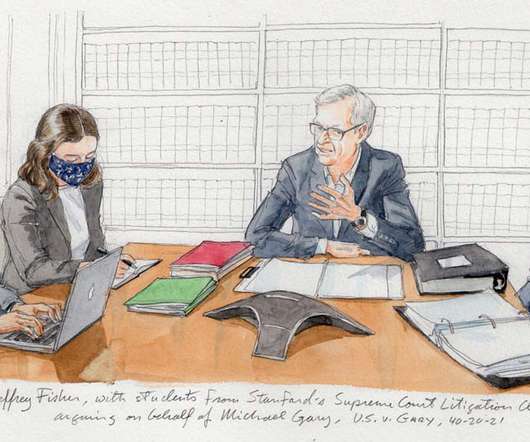Pair of immigration cases come to the court on key issue in some deportation proceedings
SCOTUSBlog
APRIL 14, 2023
Congress extended the Immigration and Nationality Act, which regulates immigration into the United States, in 1988 to give immigration enforcement authorities, now the Department of Homeland Security, the power to automatically deport noncitizens convicted of an “aggravated felony” at the state or federal level.





























Let's personalize your content